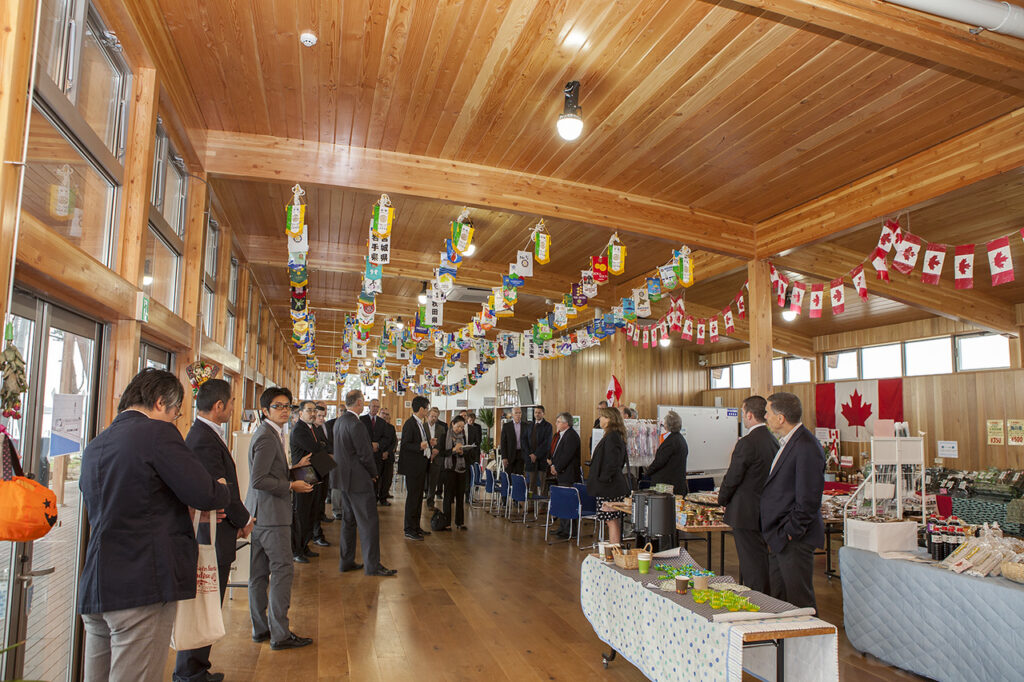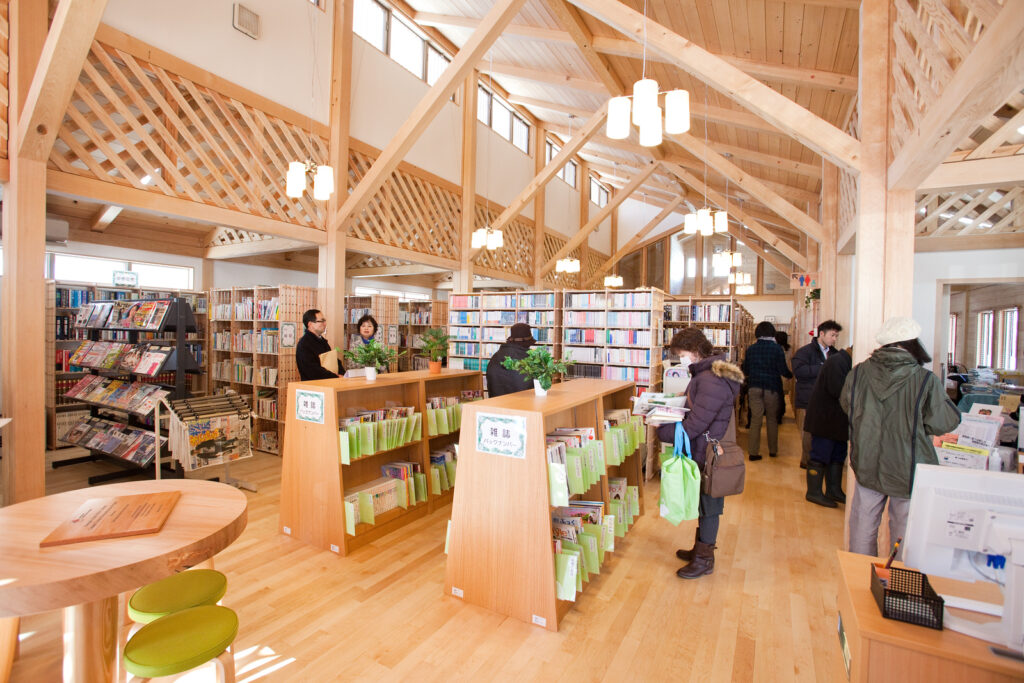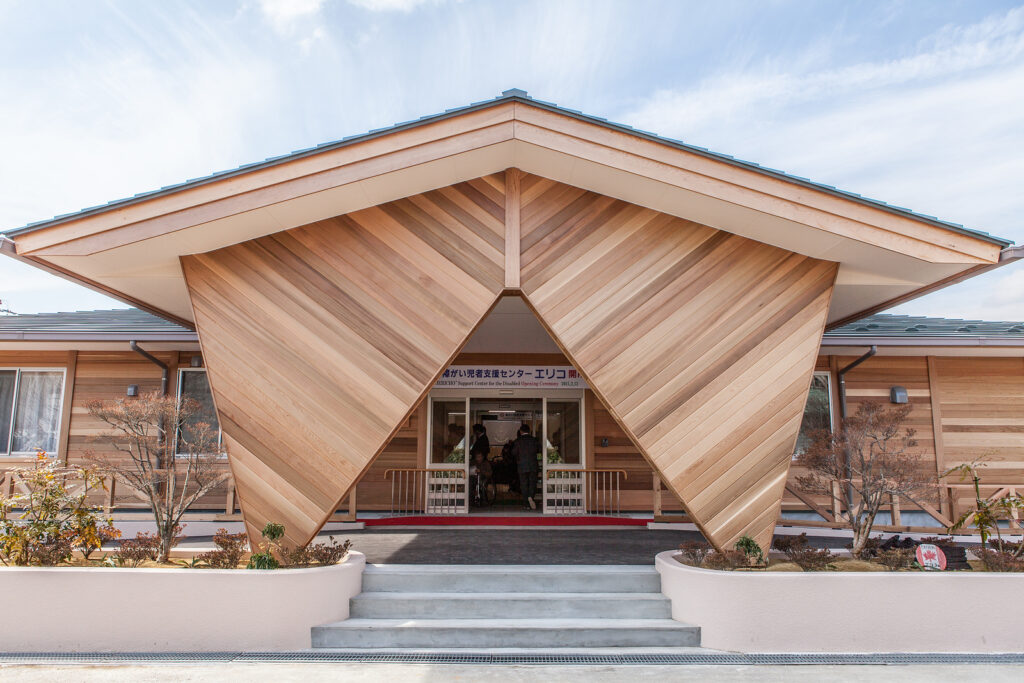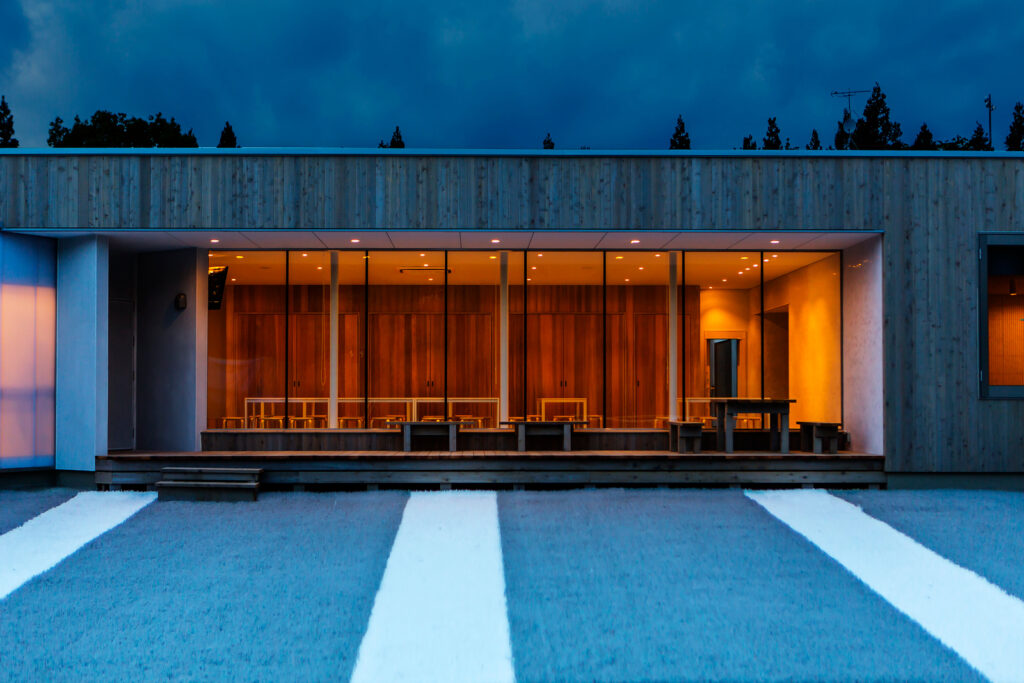COFI Celebrating 50 Years in Japan

This year marks the 50th anniversary of the establishment of the Council of Forest Industries office in Tokyo. Our anniversary also coincides with the opening of the 2×4 building method in Japan. Founded in 1974 on behalf of British Columbia’s forest industry, our mandate was to expand trade opportunities for Canadian lumber in Japan. During this period as Japan’s miracle economy grew, so too did the need for quality affordable housing. COFI began to closely work with Japanese government authorities to adopt the use of the North American 2×4 Platform Frame Construction (PFC) to Japan. In 1974 Japan’s Ministry of Construction formally approved of the 2×4 PFC building code and dimension lumber grading standards.
Since the mid-1970’s COFI has partnered closely together with Japan’s housing industry to grow 2×4 housing from a largely unknown niche status to a mainstream form of construction that is highly recognized for its seismic performance and energy efficiency. In the fall of 1977 in Tokyo’s Ginza an ambitious “2×4 Caravan” promotional campaign was launched wherein 102 single family model homes were built in 25 cities across Japan. At the same time, COFI was facilitating missions with an approximate total of 1,600 Japanese code officials, carpenters, architects and builders traveling to Canada to learn about 2×4 construction standards and lumber grades by the late 1970’s.
Over subsequent decades our market focus shifted towards addressing codes and standards related non-tariff barriers, with COFI playing a leading advocacy role in expanding market access for Canadian forest products in Japan. The trilateral U.S. – Japan – Canada JAS Technical and Building Experts Committee were established as forums to address codes and standards issues with Japanese government regulatory officials. Similarly, a bilateral Canada-Japan Housing Committee was established wherein COFI collaborated with Forintek (Now FP Innovations), the National Research Council (NRC) and the Canadian Housing & Mortgage Corporation (CMHC) to advocate for the adoption of R2000 high energy efficiency standards to support the expansion of 2×4 housing in Japan. COFI also became accredited as an overseas grading agency for JAS lumber products, certifying 12 mills in BC to facilitate export of J-Grade lumber to Japan. By the mid 1980’s, Japan’s 2×4 housing market had grown to over 25,000 units annually.
In the early 2000’s COFI initiated a joint fireproof R&D program with the Japan 2×4 Home Builders Association to develop fireproof building assemblies allowing 2×4 construction to expand beyond one and two storey housing into multi-storey, multi-family and non-residential construction. This test program resulted in COFI achieving more than 50 MLIT Ministerial approvals for fireproof and quasi-fire proof construction, thereby expanding opportunities for 2×4 in midrise, multi-family and large scale commercial applications. This focus on innovation to expand markets resulted in a surge of multi-family starts and by 2010, multi-family construction grew to comprise over half of 2×4 building starts. Concurrently the use of 2×4 fireproof approvals expanded to a cumulative total of over 4,400 by 2024, including over 150 4 to 6 storey midrise and 100’s of non-residential structures such as offices, hospitals, elderly care homes and commercial buildings.
In 2011 the Great East Japan Earthquake and Tsunami brought with it tremendous devastation to the Tohoku region of Japan. As many of us in Canada’s forest products industry have developed strong ties and friendships with our colleagues in Japan, we felt the need to help in the modest way that we could. In late 2011 Canada Wood coordinated a mission of Canadian federal and provincial ministers and top forest industry executives to the Tohoku region to learn how we could assist. Shortly thereafter the Canada Japan Tohoku Reconstruction was launched to build and donate public structures to communities in need following the devastating tsunami. Between 2011 and 2015, COFI / Canada Wood Tokyo was tasked with spearheading this $4.7 million humanitarian relief effort. Working with local partners, this project resulted in the construction of the Yuriage public market and Donguri Anne public library in Natori, Miyagi, the Orandajima After School Children’s Club in Yamada Cho, Iwate Prefecture and the Jericho Support Center for the Disabled in Iwaki, Fukushima Prefecture. These structures built with Canadian wood and donations remain as enduring symbols of the ties of friendship between Canada and Japan.
Into the 2010’s as 2×4 structures grew in scale, height and complexity, COFI Japan focused our R&D efforts on developing innovative wooden building solutions that satisfy longer span and more stringent seismic performance requirements inherent to these buildings. In collaboration with FP Innovations, beginning at the NEESWOOD Midrise test in Kobe in 2009, a multi-year R&D program to adopt the Canadian Midply high performance shear wall to Japan began. Following an extensive test regime, Midply was adopted into Japan’s 2×4 Building Code Greenbook Structural Design Manual in 2018 and by 2024 Midply has been used in over 10,000 homes and midrise buildings across Japan.

Today, while we are humbled by the challenges of climate change, we look forward to playing a positive role in mitigating these risks by playing a leadership role in supporting the development of green building. By sequestering half their weight in carbon, leading the expanded use sustainably harvested wood products in mass timber and non-residential applications offer the construction industry a viable opportunity in reducing their carbon footprint. In 2020 COFI achieved its first milestone in our mass timber strategy by obtaining MLIT quasi-fireproof approvals for dimension lumber-based NLT floor and roof diaphragms and commercial adoption of SPF dimension NLT resulted in the following year.
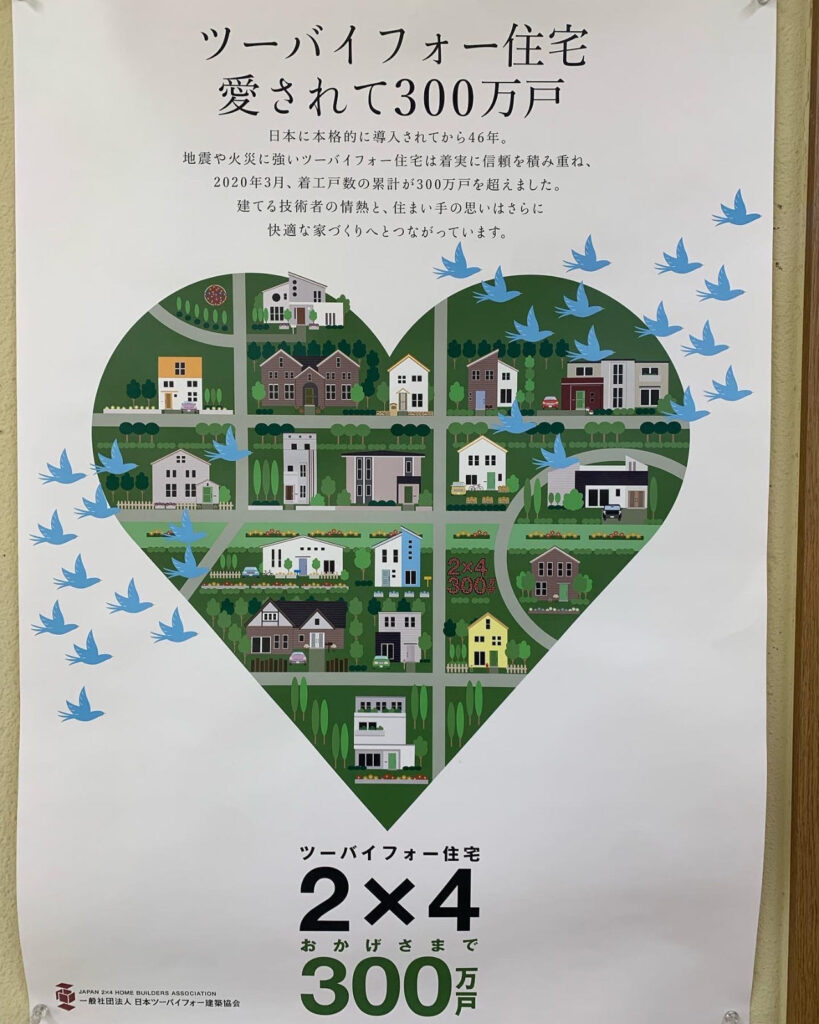
Over the past 50 years the Canadian forest products and Japanese housing industries have faced numerous challenges together. From natural disasters to volatile currencies and lumber markets, bubbles and recessions, the Covid 19 global pandemic and climate change. But throughout we have maintained an unwavering commitment to partnership with which both of our nations have benefited greatly as a result. Today, as we reflect back, we have achieved a cumulative total of over 3.3 million 2×4 housing starts. Annual trade in sustainable forest products with Japan surpasses $1 billion and our industry proudly serves as a pillar of trade between our two nations.
These successes would not have been possible without the dedication and support from our many partners here in Japan as well as from our forest products industry and government stakeholders in Canada. Nor would they have been possible without our talented and dedicated COFI / Canada Wood team both past and present.
Looking forward, we do so in remaining mindful of the key ingredients of success that have carried us forward thus far: our team, the strengths of our partnerships and growth through innovation. On behalf of all our stakeholders in Canada, I would like to express our heartfelt thanks for your many years of support and we look forward to continuing to engage closely with our partners in Japan to expand opportunities for Canadian forest products in the future.



